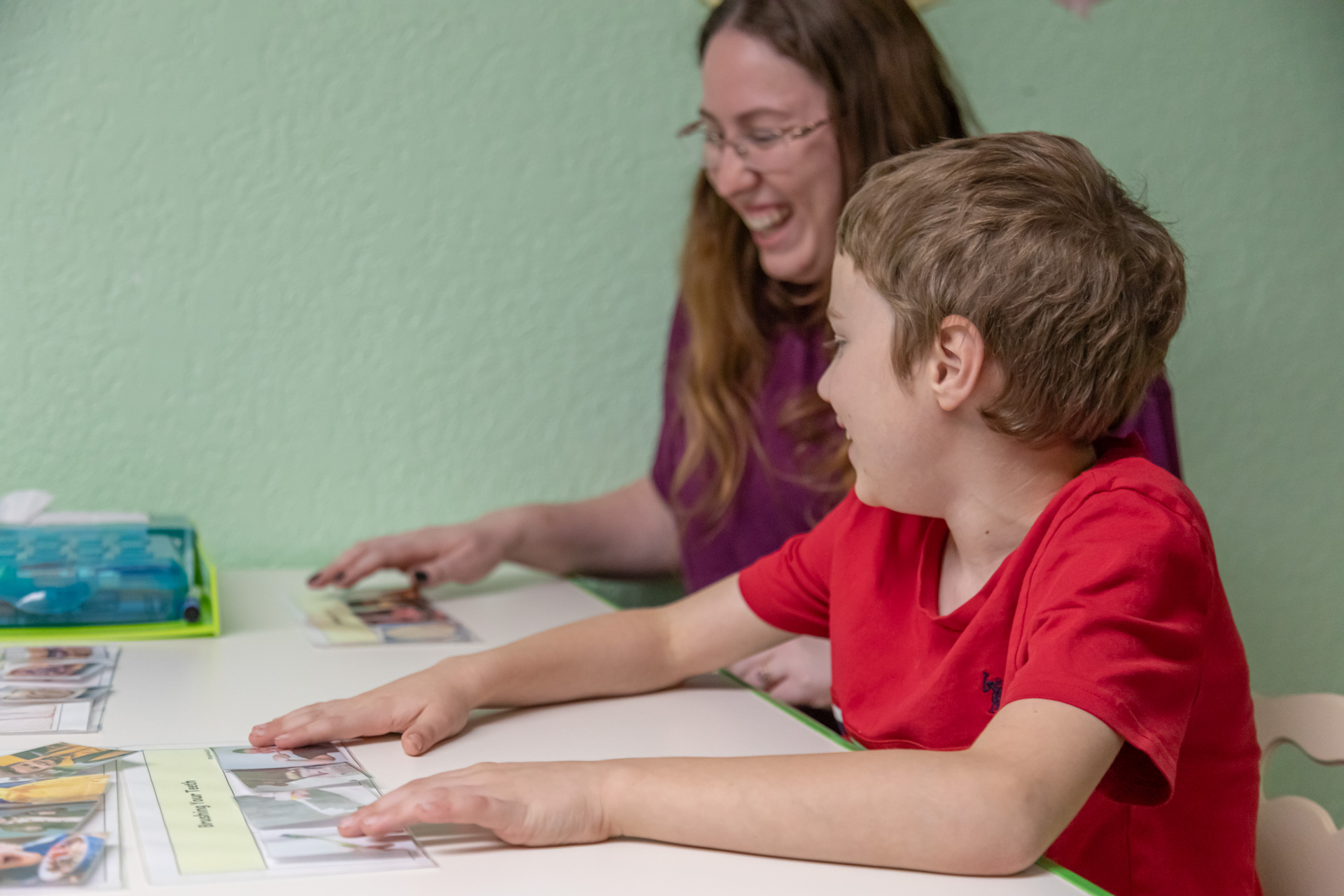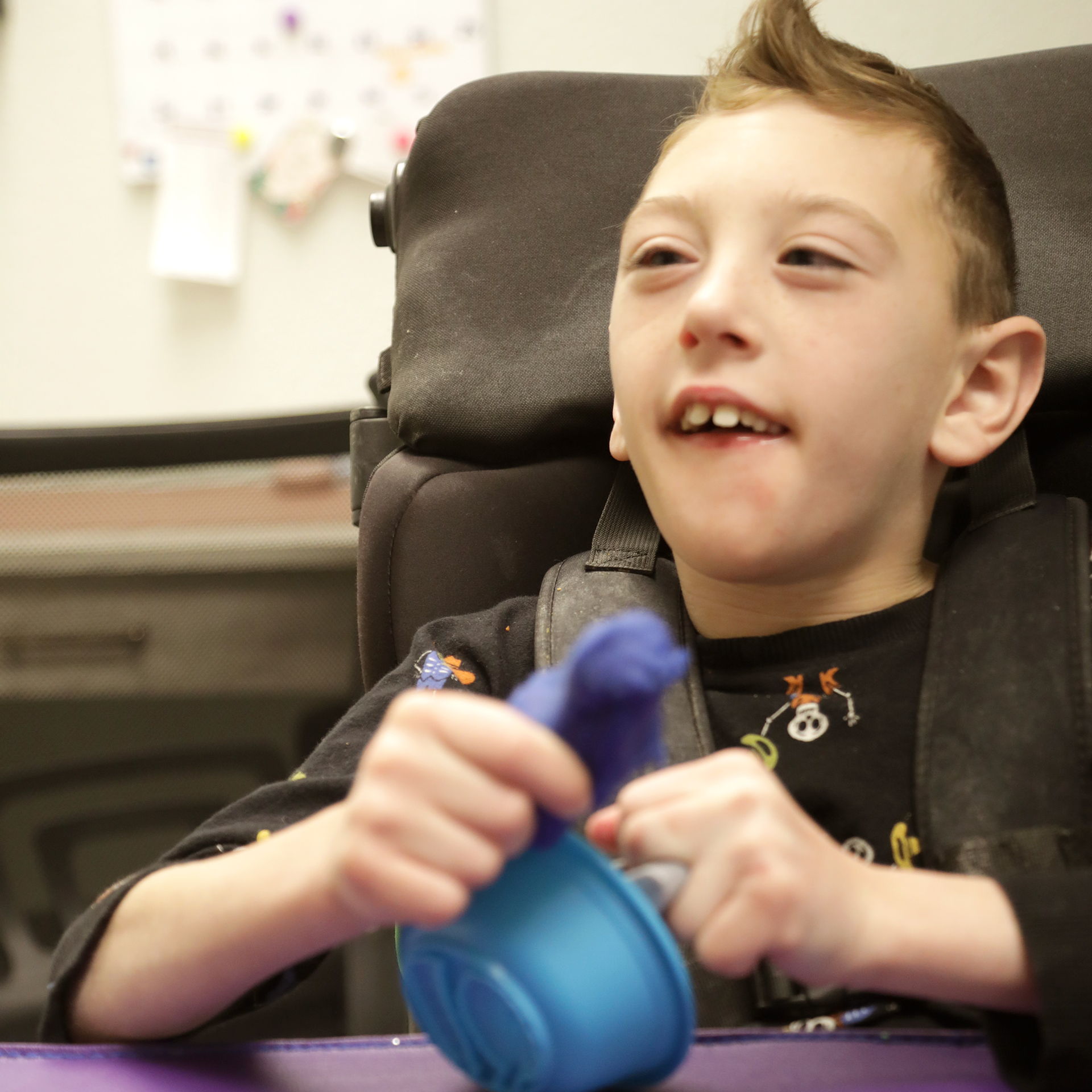The Role of Counseling in Building Resilience in Children


Exploring the Impact of Counseling on Child Resilience
Children face a multitude of challenges ranging from academic pressures to familial dynamics. Counseling plays a pivotal role in providing them with the tools to navigate these complexities, thereby fostering resilience. This article delves into how therapeutic support contributes to the emotional and psychological development of children, offering practical insights for parents and educators to nurture resilient young minds.
Understanding Resilience: Therapy's Role in Child Development

How does therapy help build resilience in children?
Therapy plays a pivotal role in building resilience in children through various tailored interventions. It provides a safe environment where children can express their feelings openly. This emotional expression is crucial for understanding and processing their emotions.
Therapeutic approaches like play therapy and cognitive-behavioral techniques focus on enhancing emotional regulation skills. Children learn coping strategies to manage stress, anxiety, and frustration effectively. By fostering skills such as mindfulness, acceptance, and problem-solving, therapy equips children to confront adversity with confidence.
Furthermore, resilience is viewed as a dynamic process influenced by psychosocial factors. Therapy enhances this resilience by recognizing the importance of supportive relationships, both familial and peer-based. Therapists guide children to identify these protective factors, helping them navigate challenges more effectively.
Here are some ways therapy contributes to resilience development:
| Aspect | Impact on Resilience | Details |
|---|---|---|
| Emotional expression | Enhances understanding of feelings | Allows for processing and validation of emotions |
| Coping strategies | Teaches management of stress and adversity | Fosters skills like mindfulness and effective communication |
| Supportive relationships | Builds a network of emotional support | Encourages connection with caregivers and peers |
| Problem-solving skills | Enhances adaptability in challenges | Empowers children to face difficulties constructively |
Overall, therapy nurtures a child's ability to recover from difficulties, reinforcing that resilience can be learned and strengthened in a supportive setting.
Strategies to Foster Resilience in Children Through Counseling

What are effective strategies for building resilience in children?
Effective strategies for building resilience in children involve multi-faceted approaches, particularly through counseling. Key interventions focus on creating secure environments where children can express themselves freely. School programs can incorporate social-emotional learning (SEL) frameworks that enhance emotional awareness.
Counselors introduce coping strategies that are age-appropriate, ensuring children understand and can manage their emotions effectively. Techniques such as mindfulness, deep breathing, and creative expression play crucial roles in improving emotional regulation and stress management.
The role of counselors in teaching problem-solving and emotional regulation
Counselors are pivotal in equipping children with essential problem-solving skills. During sessions, children can engage in discussions that challenge them to evaluate situations and develop solutions. This dynamic not only builds confidence but encourages a growth mindset where challenges are viewed as learning experiences.
Furthermore, counselors promote emotional regulation by teaching children practical strategies for managing strong feelings or stressors. By fostering these skills, counselors help establish a foundation for resilience, enabling children to navigate various life challenges effectively.
In summary, the supportive role of counselors, coupled with effective strategies, creates a robust framework for developing resilience in children, ultimately ensuring they can face life's adversities with confidence.
The Framework of Resilient Education

Why is it important to integrate resilience-building into school programs?
Resilience plays a vital role in early childhood education by promoting positive adaptation to challenges. Engaging children through enriching experiences and supportive relationships fosters their development of resilience.
Educators can contribute by establishing a nurturing environment, encouraging positive relationships with peers, and facilitating interventions that support emotional well-being. For instance, implementing social-emotional learning (SEL) programs helps children in developing essential skills like empathy, emotional regulation, and problem-solving.
Additionally, resilience-building in schools aids children in managing stress, thus enriching their personal growth and preparing them for both academic and personal obstacles in life. Early interventions through school counseling can also address emotional and behavioral issues, thereby shaping a supportive atmosphere that enhances resilience further.
Early interventions in child therapy
Early intervention is crucial in child therapy as it can mitigate the long-term effects of emotional distress. By addressing issues like trauma or developmental disorders promptly, therapists help children learn coping strategies and build resilience from a young age.
Resilience in school settings
Creating a safe and supportive school environment is essential in fostering resilience. Schools can implement programs that teach problem-solving and emotional awareness, encouraging children to see challenges as growth opportunities.
Support from educators
Educators play a significant role in promoting resilience by providing consistent support. By fostering relationships and offering guidance, they help children develop a sense of belonging, which is fundamental for nurturing resilience in educational settings.
Therapeutic Methods in Enhancing Emotional Regulation and Problem Solving

Techniques Like Play Therapy and Cognitive-Behavioral Therapy
Therapy is a powerful tool that equips children with essential skills for emotional regulation and problem-solving. Two common therapeutic approaches are play therapy and cognitive-behavioral therapy (CBT).
- Play Therapy: This method enables children to express themselves through play, a natural form of communication for them. By interacting with toys, puppets, or art materials, children can explore their feelings and experiences in a safe environment.
- Cognitive-Behavioral Therapy (CBT): This evidence-based approach helps children identify negative thought patterns and replace them with healthier coping strategies. CBT teaches children how to manage anxiety and stress, fostering resilience as they learn to reinterpret challenges positively.
Developing Emotional Awareness and Regulation
Fostering emotional awareness is crucial for children’s development. Therapy encourages children to recognize and understand their emotions, which is foundational for emotional regulation. Here are some vital aspects:
- Emotional Awareness: Children learn to identify their feelings, such as sadness or anger, empowering them to communicate these emotions effectively.
- Emotional Regulation: They are taught practical coping strategies, including mindfulness techniques and deep breathing exercises, that help manage their emotions constructively. This skill aids in navigating challenges more effectively, building resilience over time.
Why Is It Important to Integrate Resilience-Building Into School Programs?
Integrating resilience-building into school programs is essential. It promotes positive adaptation to challenges and equips children with tools to navigate both academic and personal difficulties. Techniques such as Social Emotional Learning (SEL) enable children to understand their emotions, cultivate empathy, and enhance emotional regulation, resulting in well-rounded individuals capable of overcoming life’s obstacles.
The Crucial Role of Early Interventions and Support Systems

The Significance of Early Interventions and Support Systems in Developing Resilience
Early interventions play a pivotal role in fostering resilience in children. They help mitigate the long-term effects of challenges such as trauma, familial dysfunction, and stress. By establishing a supportive environment, children are better equipped to navigate emotional complexities and develop coping mechanisms.
Strong family and community networks enhance the impact of these interventions. Supportive relationships, especially with primary caregivers, are crucial for children's emotional development. Studies like the Kauai Longitudinal Study have shown that children who maintain at least one stable relationship with a caring adult often exhibit stronger resilience qualities.
Evidence-based social-emotional learning (SEL) programs in schools have also proven effective. These programs equip children from diverse backgrounds with essential coping skills and foster supportive environments. Such proactive measures contribute significantly to developing children's resilience, allowing them to face life's challenges with greater confidence and stability.
Navigating Challenges: The Intersection of Counseling and Adversity in Children
How can childhood trauma affect resilience?
Childhood trauma can significantly impact a child's resilience by overwhelming their coping abilities and leading to difficulties in managing stress and adversities. Many children exposed to traumatic events may experience heightened anxiety, depression, or behavioral issues, impairing their capacity to bounce back from setbacks.
Those who face trauma in environments lacking supportive relationships are at a greater disadvantage, potentially struggling throughout their lives when obstacles arise. Conversely, children surrounded by caring adults can develop resilience even in adverse situations. Studies emphasize the necessity of trauma-informed care and strength-based interventions to help children recover and thrive despite their challenging experiences.
Counseling's impact on family dynamics
Counseling plays a crucial role in enhancing family dynamics, particularly in the context of adversity. By fostering open communication and understanding, counselors help families navigate emotional complexities together. They address the dynamics affected by trauma, allowing family members to share their feelings in a safe environment.
In counseling sessions, parents can learn to model resilient behaviors and adopt practices that support their children's emotional well-being. Facilitated conversations often strengthen bonds, encouraging a collaborative approach to problem-solving. Families can improve interactions, reduce conflict, and cultivate a nurturing atmosphere.
table for reference below:
| Topic | Key Points | Importance in Resilience |
|---|---|---|
| Childhood Trauma | Can overwhelm coping abilities, leading to stress management issues | Understanding trauma's impact is key for effective support |
| Supportive Environments | Family and community support can moderate negative mental health impacts | Building resilience through strong connections |
| Counseling | Enhances communication, promotes problem-solving, and strengthens family bonds | Essential for fostering a supportive home environment |
The Foundations of Resilience: The Significance of Early Childhood Experiences
What role does resilience play in early childhood education?
Resilience plays a vital role in early childhood education by promoting positive adaptation to risk and facilitating successful navigation through challenges. Strong relationships with caregivers greatly enhance children's ability to develop resilience, providing the support they need to cope with difficulties.
Incorporating social and emotional learning (SEL) into early education programs can foster essential skill sets in young children. These programs focus on emotional regulation, problem-solving, and communication, all of which are foundational for resilience. By creating an environment rich in supportive relationships and enriching experiences, children are better equipped to handle the ups and downs life throws at them.
Evidence-based approaches in schools
Evidence-based approaches to building resilience are crucial in educational settings. Programs like Cognitive Behavioral Therapy (CBT) and various social-emotional learning curricula have been proven effective. Such programs target emotional awareness and coping strategies, enabling children to cope with stress and anxiety.
Additionally, community-based interventions that promote parental involvement and mental health support further enhance resilience in children. These efforts establish a support network that can be invaluable in their development. A comprehensive strategy—including trauma-informed care, collaboration among teachers, parents, and counselors—helps create a resilient community of learners who can thrive in the face of adversity.
How Therapeutic Techniques Contribute to Resilience
Detailed Insights into the Mechanisms of Resilience-Building and Therapeutic Practices
Therapeutic practices play a pivotal role in building resilience among children. Techniques such as Cognitive Behavioral Therapy (CBT) and Dialectical Behavior Therapy (DBT) are at the forefront of these interventions.
- Cognitive Behavioral Therapy focuses on identifying and changing negative thought patterns. By addressing these thoughts, children learn to cope better with stressors.
- Dialectical Behavior Therapy emphasizes emotional regulation and mindfulness, teaching kids to manage their emotions constructively.
The therapeutic alliance between counselors and their clients significantly enhances the effectiveness of these interventions. A strong relationship built on trust provides a secure environment for children to explore their feelings and fears, an essential aspect of building resilience.
Additionally, methods like art therapy and play therapy allow for creative expression, making it easier for children to articulate their emotions. These techniques create an engaging atmosphere conducive to learning coping skills, thus facilitating the development of resilience in young individuals.
Minimizing Long-term Effects of Childhood Challenges through Early Counseling
Importance of Early Childhood and Trauma-informed Care
Early intervention in childhood is essential for fostering resilience and minimizing the long-term effects of trauma. Children who experience trauma may struggle with emotional regulation, self-esteem, and overall mental health. These difficulties can have lasting implications, impacting their ability to cope with life's challenges effectively. Counseling that incorporates trauma-informed care acknowledges the effects of trauma and provides a safe space for children to express their feelings and learn coping strategies.
Trauma-informed care emphasizes understanding each child’s unique experiences and challenges, guiding therapeutic approaches that enhance resilience. The focus on establishing trust and support helps children navigate the complexities of their emotional landscapes, promoting healthier outcomes.
Child Therapy as a Preventive Intervention
Child therapy serves as a crucial preventive intervention that empowers children facing emotional and psychological difficulties. By engaging in therapy at a young age, children can develop foundational skills like emotional regulation and problem-solving, which are vital for resilience.
Through counseling, children learn to identify and articulate their feelings, gain insights into their behaviors, and understand the dynamics of their social interactions. Therapists use various age-appropriate techniques, such as play and art therapy, tailored to meet each child’s needs. These methods not only help alleviate symptoms but also equip children with lifelong skills to face adverse situations confidently.
By embracing early counseling, children can fortify their resilience, ensuring they have a robust foundation to build upon as they grow.
Counselor and Family: Partners in Building Resilient Children
How can parents and educators foster resilience in children?
Parents and educators play a crucial role in fostering resilience in children by creating safe and nurturing environments. Providing consistent emotional support is essential, as it allows children to feel secure and valued. Establishing daily routines also promotes a sense of stability, which helps children build confidence and independence.
Encouraging positive peer interactions is vital. When children engage positively with their peers, they learn essential social skills that aid in navigating emotional complexities. Encouraging open communication enables children to express their feelings freely, which is fundamental for emotional regulation.
Teaching critical problem-solving skills empowers children to face challenges head-on. By assigning them age-appropriate responsibilities, parents and educators reinforce a growth mindset—promoting the idea that challenges are opportunities for learning.
Furthermore, fostering empathy and emotional awareness serves as a foundation for resilience. These skills help children understand and manage both their emotions and those of others, enabling them to build supportive relationships that are essential for navigating adversity effectively.
In summary, the collaborative efforts of parents and educators, combined with counseling support, create an invaluable framework for fostering resilience in children. Through structured support, they ensure that children can thrive despite challenges, laying the groundwork for a healthy emotional development.
Therapeutic Techniques for Building Emotional Regulation and Coping Skills
Exploring coping strategies and emotional regulation through counseling techniques
Counseling plays a significant role in teaching children how to manage their emotions and develop effective coping strategies, which are critical components of resilience.
Emotional regulation
Techniques like Cognitive Behavioral Therapy (CBT) and Dialectical Behavior Therapy (DBT) are effective approaches that help children identify and reframe negative thought patterns. By addressing cognitive distortions, children learn to foster a growth mindset. This shift in thinking encourages them to view challenges as opportunities for personal development.
Mindfulness techniques
Mindfulness practices, such as deep breathing exercises, meditation, and even yoga, teach children how to calm themselves during stressful situations. These techniques promote emotional regulation by allowing children to develop awareness of their feelings and responses, enabling them to act rather than react. This self-awareness is essential for managing anxiety and stress.
Coping strategies
Counseling also focuses on equipping children with practical coping strategies tailored to their unique situations. Techniques may include journaling, engaging in creative expression through art, or even utilizing problem-solving skills to address specific challenges. By building these coping mechanisms, children not only learn to navigate their emotional landscapes but also gain resilience that will serve them throughout their lives.
Building Self-Esteem and Social Skills Through Counseling
How do the 7 Cs of resilience help in childhood development?
The 7 Cs of resilience—competence, confidence, connection, character, contribution, coping, and control—serve as crucial frameworks in aiding children's growth. Through counseling, children learn to develop competence and confidence by recognizing their strengths and capabilities.
When children engage in therapeutic activities that promote self-awareness and self-regulation, they boost their self-esteem significantly. This empowerment allows them to cope with criticism and setbacks more effectively. Counseling also enhances problem-solving skills, enabling children to process challenges independently, which further contributes to their confidence.
Positive social relationships
Counseling encourages the establishment of healthy social interactions, a vital aspect of resilience. Building connections with peers and supportive adults nurtures emotional well-being, allowing children to navigate social dynamics successfully.
As they develop social skills, they learn to communicate effectively, resolve conflicts, and engage positively with others. These relationships create a safety net, ensuring that children feel valued and connected, which is essential for cultivating resilience and lasting confidence.
In summary, focused counseling interventions not only foster self-esteem and problem-solving capabilities but also help children build supportive social networks, equipping them to face life's challenges effectively.
The Importance of Integrated Support Systems for Enhancing Resilience
Social, Cultural, and Familial Support Structures
Integrated support systems play a vital role in facilitating resilience in children. These structures encompass social, cultural, and familial avenues that can significantly influence emotional growth. Positive relationships with peers and family members create supportive networks that reinforce a sense of belonging, essential for emotional stability. Caring adults in a child's life, such as teachers and mentors, also contribute to developing resilience by providing encouragement and guidance.
Parental Involvement
Parental involvement specifically leads to better emotional outcomes. Engaged parents help create a safe environment where children can express their feelings freely. They also model resilience through their responses to stress, providing children the tools to adapt and overcome challenges. By fostering secure attachments and promoting open communication, parents lay a foundation for children to build their resilience against adversity.
How does childhood trauma affect resilience?
Childhood trauma can profoundly affect a child's development, hindering their ability to cope with stress and adversity. When critical support systems are lacking, children may struggle long-term with resilience. However, resilient children who benefit from caring and stable relationships can buffer the negative effects of trauma, helping to prevent long-term mental health issues like depression and anxiety. While trauma can disrupt emotional well-being, a solid support network can catalyze recovery and growth, transforming challenges into opportunities for personal development.
The Significance of Early Intervention in Fostering Resilience
The significance of early interventions and support systems in developing resilience
The importance of early interventions and support systems in developing resilience in children cannot be understated. The mental health and well-being of children benefit greatly from early detection and management of emotional challenges. Evidence shows that early intervention helps curb potential negative long-term effects on a child's emotional and social development.
Key Early Childhood Interventions
Initiatives such as:
- Social-Emotional Learning (SEL): Evidence-based programs in schools equip children with essential coping skills.
- Parenting Skills Training: Enhancements in parenting practices can create nurturing environments that foster resilience.
Preventive Measures in Mental Health
Preventive measures, including the strengthening of parenting skills and community resources, play a crucial role in reinforcing a child's resilience. Such interventions empower both children and caregivers, enabling families to navigate challenges better and enhance emotional stability. This supportive framework assists in building a resilient mindset from a young age.
Counseling Impact: Building a Resilient Future for Children
How does resilience play a role in child development?
Resilience plays a pivotal role in the healthy development of children. It allows them to adjust and thrive amid various adversities, including familial issues, academic pressures, and social dynamics. Through counseling, children learn vital skills that enhance their resilience, such as emotional regulation and problem-solving techniques.
Developing resilience helps mitigate the risks associated with mental health issues. When children can effectively manage stress, they are less likely to experience negative consequences like anxiety and depression.
Moreover, strong and supportive relationships with caregivers are crucial for nurturing resilience. When parents model resilient behaviors and engage in supportive family dynamics, they create an environment where children can flourish.
Counseling not only equips children with the tools needed to navigate challenges but also fosters self-esteem, encouraging a positive self-image. This emotional foundation provides children with the confidence to face life's difficulties head-on, promoting better long-term mental health outcomes.
In summary, resilience supports the developmental trajectory of children. By emphasizing the importance of counseling in enhancing resilience, we lay the groundwork for healthier, more adaptive futures.
Conclusion: Embracing Counseling for Resilient Generations
Counseling is an invaluable resource in building resilience among children, providing them tools to navigate life's challenges with confidence and strength. By fostering emotional awareness, enhancing social skills, and instilling a growth mindset, counseling equips children with the resilience to adapt positively in the face of adversity. As we continue to acknowledge the importance of mental health in early development, integrating therapy and resilient education into children’s daily lives is paramount. Through collaborative efforts between families, educators, and counselors, children can cultivate the resilience required to thrive in an ever-evolving world, ensuring a brighter future for the next generation.
References
- Building Resilience in Kids – The Role of Therapy in Children's ...
- Exploring Child Therapy: Building Resilience and Emotional..
- Resilience guide for parents and teachers
- Resilience and mental health in children and adolescents
- Maximizing children's resilience - American Psychological Association
- Building Resilience in Children: Practical Strategies for Parents
- Empowering Kids: How Child Counseling Can Foster Resilience
Recent articles

Celebrating Small Wins: How Therapy Helps Kids Build Confidence All Year Long
Learn why small wins in therapy matter, how they boost your child’s confidence, and simple ways families can celebrate progress all year long.

Empowering Missoula Children to Grow With Confidence and Connection
Learn how ABA therapy in Missoula helps children build communication, independence, and confidence through personalized, family‑centered support at Advanced Therapy Clinic.

Compassionate Pediatric Therapy in Butte, Montana
A welcoming place where every child’s potential is celebrated

How Pediatric Therapy Helps Kids Thrive across Montana and Wyoming
A supportive guide for families exploring therapy options in Billings, Butte, Missoula or Sheridan.

How to Choose the Right Pediatric Therapy Clinic in Billings, Montana
A Parent‑Friendly Guide To Finding The Best Support For Your Child

Expressive Speech Delay 2-Year-Old
Understanding and Addressing Expressive Speech Delay in Toddlers

